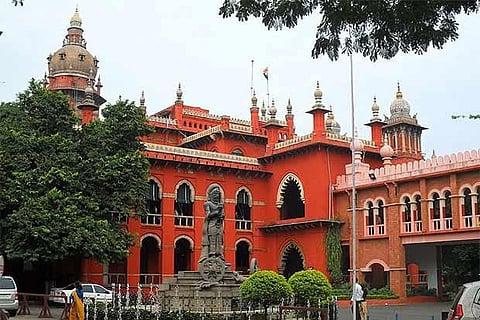

Chennai
A division bench comprising Justice R Subbiah and Justice T Krishnavalli on allowing the appeal, moved on behalf of the temple said, “The hereditary poojaris have no right in the land(s) in question, though they have been rendering service as ‘Inam’ in lieu of the remuneration for the service done by them in the temple, coupled with the fact that they are not cultivating the land(s). This shows that the hereditary poojaris have no right whatsoever in the land(s)/property(ies) in question.”
“Hence, the apportionment made by the Reference Court (Sub-Court) based on the Award passed by the Land Acquisition Officer, is not correct,” the bench said.
As per the case, in 1997, in a bid to provide housing-sites to Adi Dravidar community, Special Tahsildar, Pollachi, selected an extent of 12 acres belonging to the temple. After completion of the acquisition proceedings, an Award was passed on March 06, 1998 granting a total compensation of Rs 34.52 lakhs.
However, the hereditary poojaris of the temple claimed a share of the compensation. They contended that as Patta had been granted to them under Section 8(2)(ii) of the Inams Act, the Ryotwari Patta is considered to have been granted to the individuals rendering service, namely, the hereditary poojaris and hence that they are entitled for the compensation amount.
The trial court on accounting for the temple’s submission that the land(s) were in possession of the hereditary poojaris as ‘Inam’, passed the impugned order directing the apportionment of compensation in the ratio of 25% to the temple and 75% to the hereditary poojaris.
The division bench led by Justice Subbiah while allowing the appeal moved by the temple also held that the proceedings of the Settlement Tahsildar shows that ‘Kudivaram’ rights vest with the Temple, from which it is crystal clear that the Temple is predominantly the absolute owner of the lands/properties in question.of the Settlement Tahsildar shows that ‘Kudivaram’ rights vest with the temple, from which it is crystal clear that the temple is predominantly the absolute owner of the lands/properties in question.
Visit news.dtnext.in to explore our interactive epaper!
Download the DT Next app for more exciting features!
Click here for iOS
Click here for Android